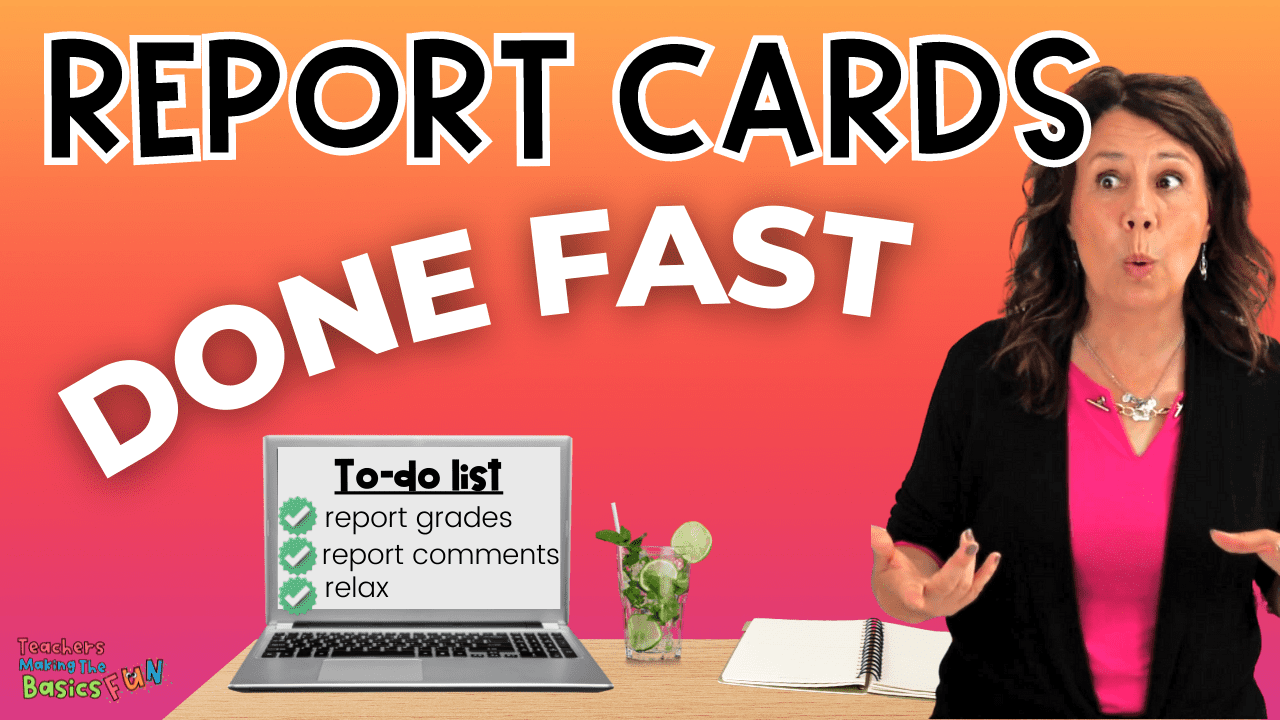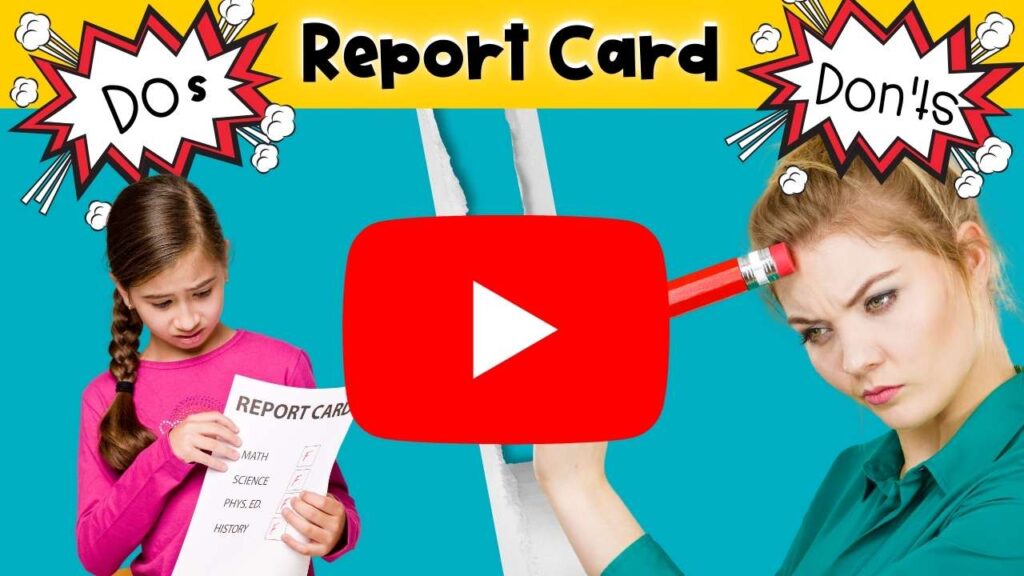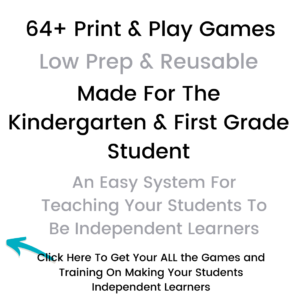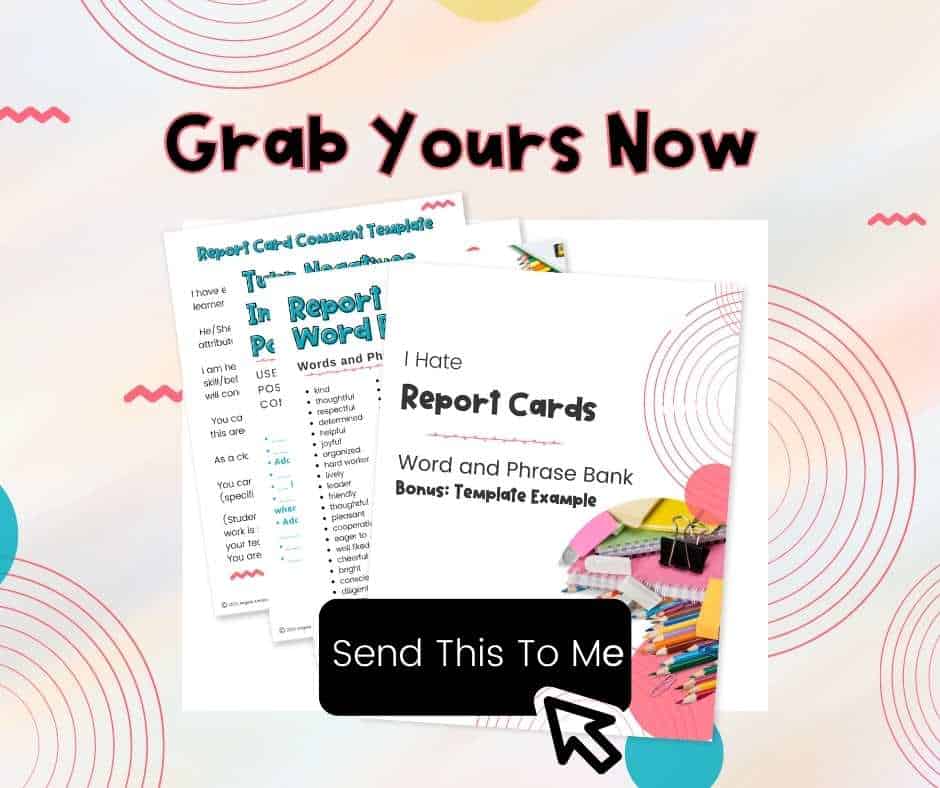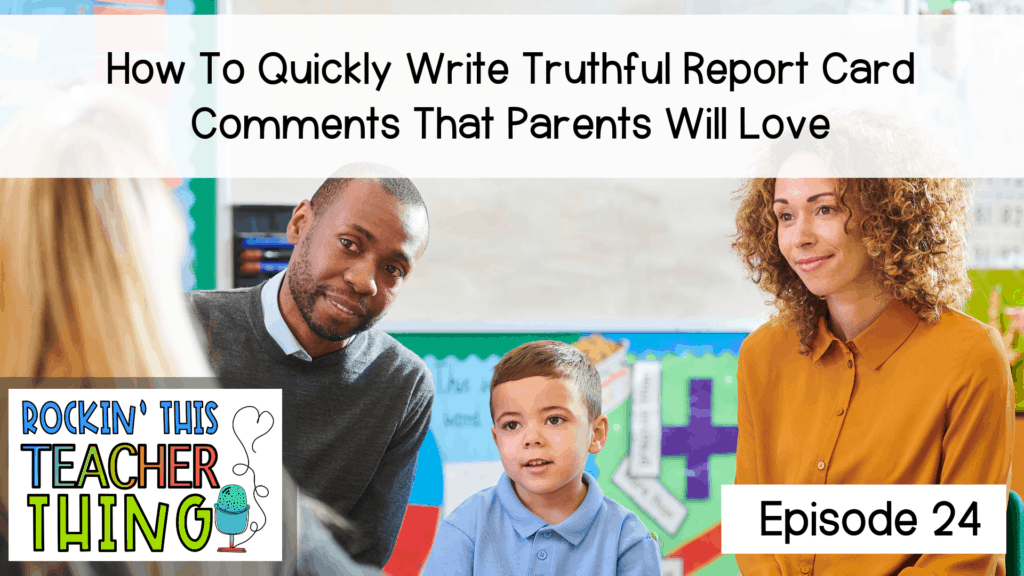Share Like A Boss

6 Dos And Don’ts For Report Card Time
It’s report card time. Report cards are a great way to show student growth BUT you can spend a lot of time doing report cards, and if you don’t handle report cards just right, your best intentions can backfire and make your teacher life pretty miserable.
6 Report Card Dos & Don’ts
Click each do & don’t below to jump to that part of the blog post.
1. Don’t rely completely on a number in a grade book.
- Do have a student folder with work samples to support percentage/grades/skills.
2. Don’t have data and students work in several places.
- Do organized data in one spot for easy and quick reference.
3. Don’t write a new report card comment for each student.
- Do use a report card template and word/comment bank to structure and quickly fill in student data and observations.
- Do communicate with parents before report cards come out about any problems.
5. Don’t use negative language in report card comments to describe a child or their skill/behavior.
- Do use positive language to describe skills/behaviors deficit.
- Do give specifics on exactly how the child is not on level and how you are working with the child to meet our exceed specific skills and/or behaviors. Plus, give strategies and materials parents can use to help the child.
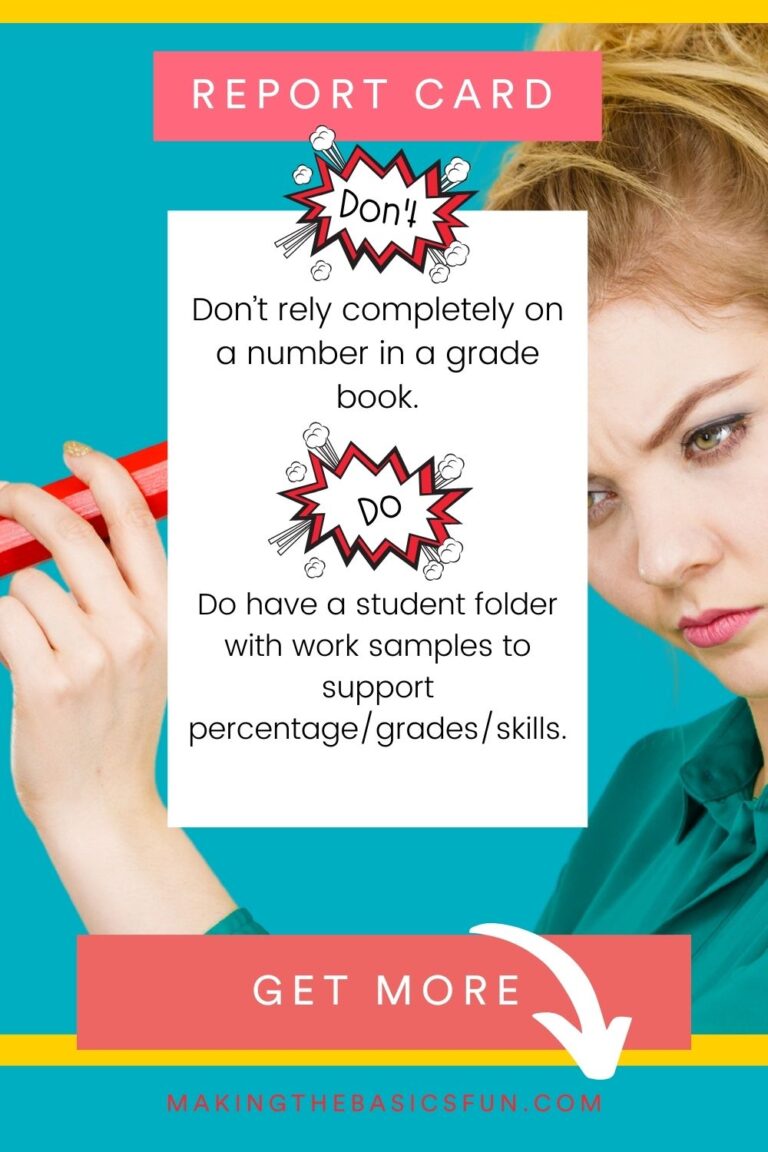
Don’t Rely On Just The Grade Book - Do Use Student Work As Well
Gradebooks might be great for older students but getting a true snapshot of what a kindergarten or first grade student can do by looking at a number in a gradebook is probably going to be a mistake.
I remember I had a student whose mom thought their child was the next Einstein.
When I indicated that the child was lacking in a few basic skills I was super glad that I had more than a check or minus in a gradebook.
When her little darling couldn’t read all the sight words for the quarter she was aghast.
We even did a quick little assessment on the spot with some flash cards revealing non mastery of some of the sight words.
It was a good check for me but it was a really good conversation starter with the mom. Sure her child could read but the student did a lot of guessing and made mistakes that did affect comprehension.
Mom went from being a bit combative to embarrassed to willing to listen and team up with me to remedy the deficit.
If I didn’t have real proof. She would have thought I “didn’t like” her child, or that I was a incompetent teacher who didn’t know her child’s skill level.
Moral of the story is to have real proof of a grade on a report card. It’s much harder in the early primary grades to just give a grade off of a series of graded tests and assignments. Use student work too.
Action Taker Tip: Make a work sample folder for each student. Make sure you have a work sample or assessment that corresponds with grades that will have to be marked on the report card. Keep it handy when filling out report cards and at parent/teacher conferences.
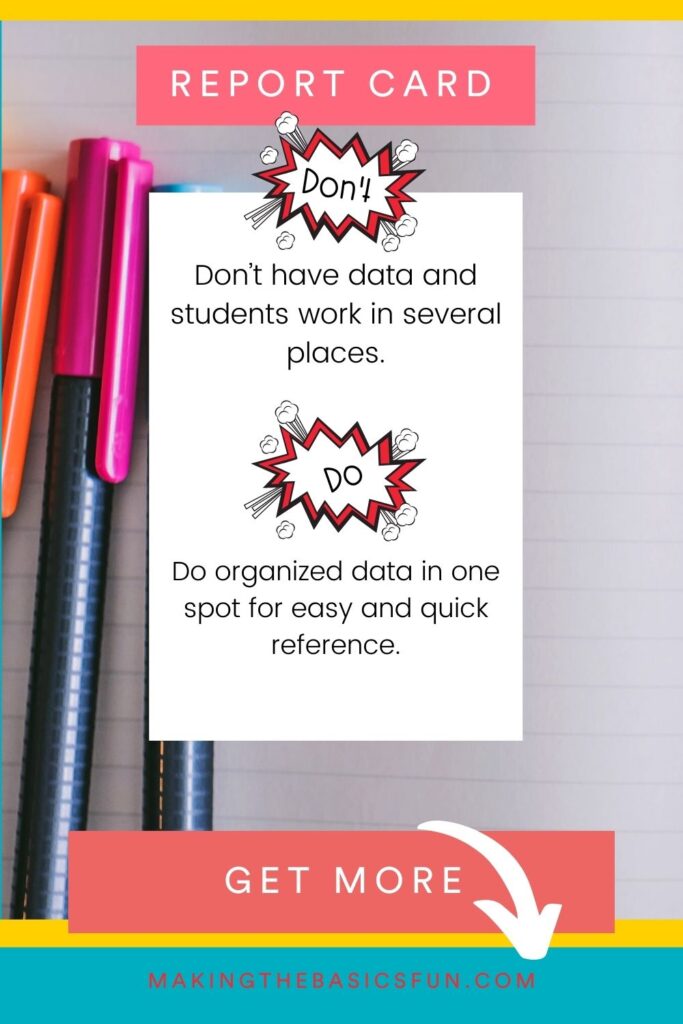
Don’t Search For Data - Do Have It All In One Spot
When you teach kindergarten and first grade it’s hard to keep track of all the tests, work samples, observations etc. Keep them all in one spot so that when report card time comes around you don’t have to spend hours searching for and organizing student data for report cards.
Having a work sample folder for each student makes it easier to keep track of everything you will need when you sit down to give grades and write report card comments.
Action Taker Tip: Make a list of everything you want to have in each student’s folder. Then a few weeks before report cards are due, double check to see if each student has everything in their folder. If a student is missing something then you still have time to assess the child.
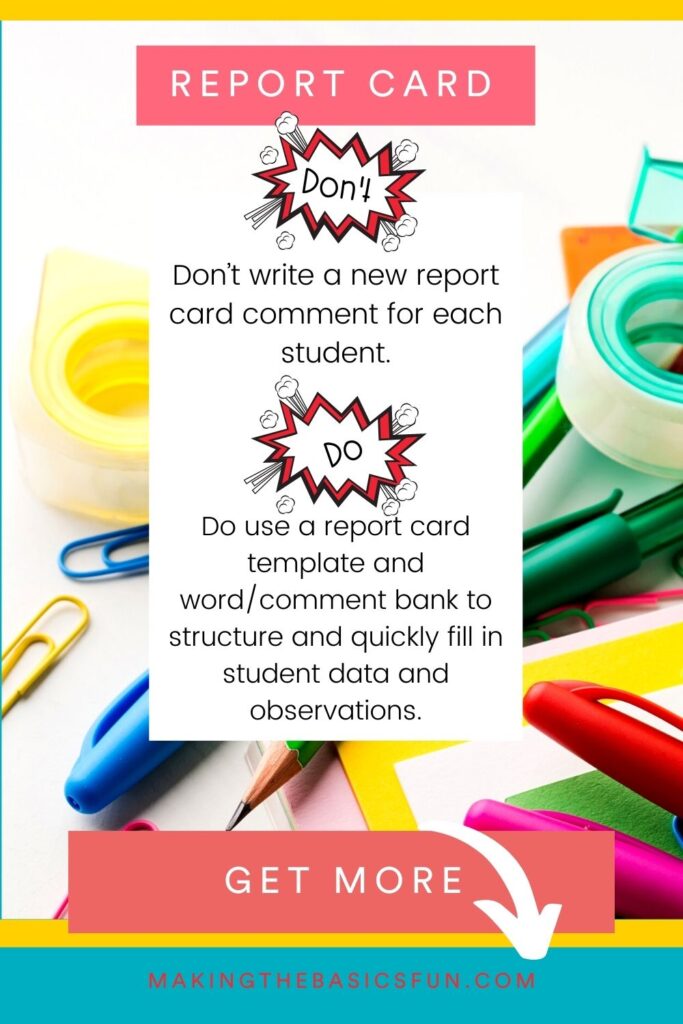
Don’t Write Individual Report Card Comments - Do Use A Report Card Comment Template
I used to spend hours writing report cards with the belief each student had to have a totally unique report card comment.
I envisioned parents comparing report card comments in the parking lot and that if they said the same thing I would be labeled a “lazy, uncaring teacher.”
But guess what, parents don’t read their child’s report card comments to all the other parents in the class. (Well most of them don’t anyway.)
So why not cut yourself a break and use a report card comment template. Then do a few tweaks here and there to personalize it and BAM… Done.
If you want an example of a template grab the free Report Card Comment PDF download found at the end of this post. It’s a report card comment word bank and template to make writing report card comments easy and fast.
Action Taker Tip: Grab the free download and draft your own report card comment template. Make sure to watch the YouTube video above to help you write positive report card comments quickly.
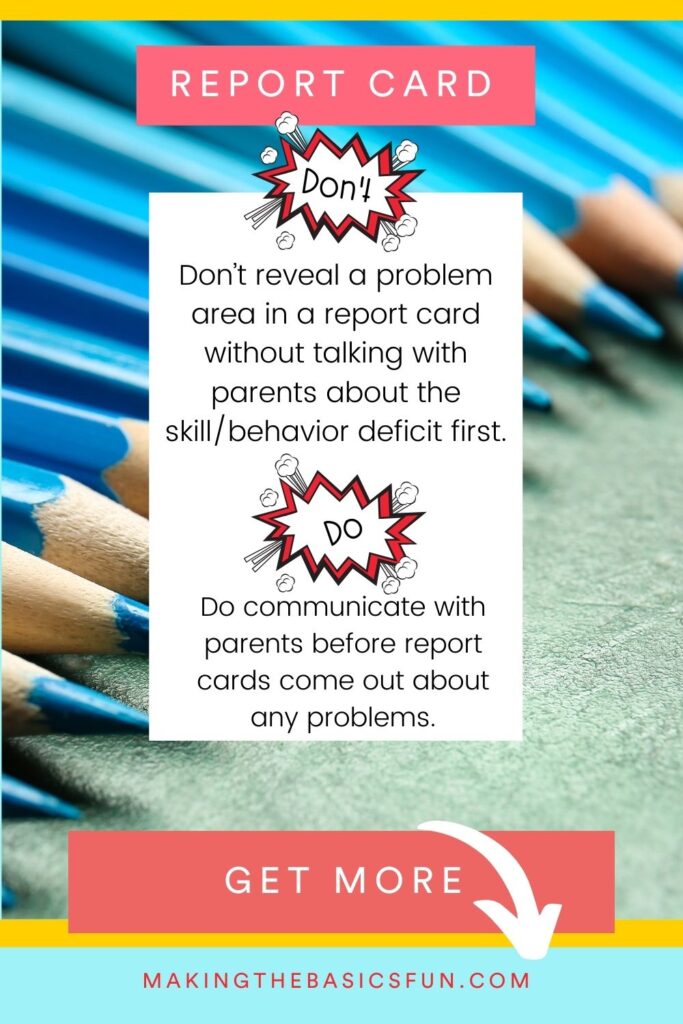
Don’t Blind Side Parents With A Problem In a Report Card - Do Communicate About Problems Before Report Cards Are Viewed
I know it’s hard talking to parents about “problems” their child is having in school.
I’ve had parents get mad. So will you.
I’ve had parents cry. So will you.
I’ve had parents remove their child from my class. I hope you don’t have that happen but you might.
The fact of the matter is if you are going to document a problem in a report card you need to have told the parent way, way, WAAAAAAY, before report card time. And you need to try and develop a team approach with parents too.
Action Taker Tip: Place a “Parent Contact” time in your weekly plans where you reach out to parents. It’s so hard, I know, but the more you do it the easier it gets. One great “side effect” to this is that parents become more comfortable with you as well. That’s when real relationships start. I’ve actually become real friends with some of my student’s parents.
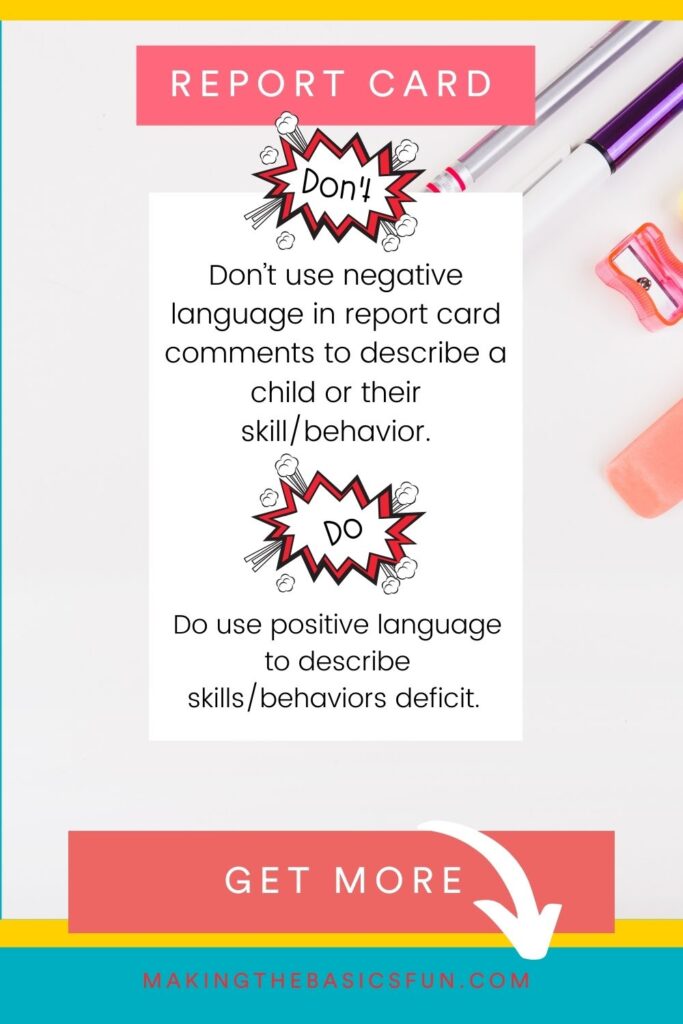
Don’t Use Negative Language To Describe A Problem - Do Use Growth MindSet (Positive) Language
How and What you say is going to mean the difference between parents wanting to team up with you vs wanting you to leave education. Even though we don’t want to sound negative, critical and nagging, sometimes it comes out that way.
When you teach, part of your job is to find and fix deficiencies. If you don’t communicate this process in a positive way you are going to have to work double hard to get parents/guardians to believe and team with you.
It would be easier to say “Pat is below grade level in reading. Pat constantly talks. Pat is unfocused. Pat is unkind. Pat is messy and unorganized. Pat doesn’t follow directions.” You get the idea.
Statements like this while true do little to show a growth mindset and belief and plan for a child’s growth.
So how do you use positive language?
Here’s some examples:
“Pat is working an extra 10 minutes a day to reach his goal of reaching grade level reading by the end of the quarter.” You are still saying there’s a problem but you are also giving how the deficiency is being addressed.”
“With teacher help, Pat is doing better with controlling his impulse to talk out of turn. He is becoming better equipped to appropriately share his ideas in a group setting.”
“Pat continues to work on focusing on a task. I know that this is difficult for him but he is using some strategies such as using the standing desk, using a timer and taking short, walk away breaks to help him develop the “focus muscle”. He can now work on a task for 30 seconds before taking a 30 second break. This is a big improvement from being able to focus for only 15 seconds and being unable to re engage after a break.”
I think you’ll agree that using positive language is better. Sure it takes a bit more effort but so does having constant altercations with parents who think you are a substandard teacher.
Action Taker Tip: When you are listening to other teachers talk about students, think about how their statements could be reframed with positive language. This will help you identify “negative” talk and give you opportunities to reword it into “positive” talk.
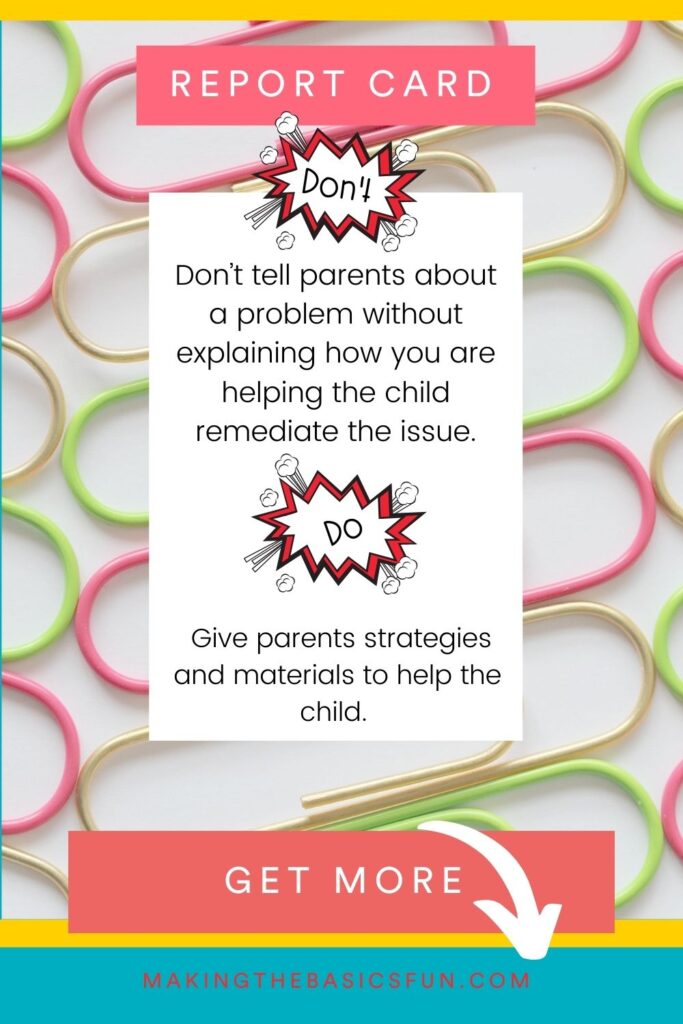
Don’t Tell Parents About A Problem Without Giving Them Something They Can Do To Help - Do Give Parents Ideas and Materials That They Can Use To Help Their Child
When we tell parents there’s a problem MOST parents want to help and they want to know what you are doing. They want to see their child succeed.
If you have a parent who is willing to help, then give them some ideas/materials they can use with their child.
Don’t give them “teachery” things. Sometimes a worksheet or writing assignment is too much. Instead give them fun but educational tasks.
Like what?
Games: Fun games that they can do as parents. Here’s a 60+ games parents can do with their child. There’s even video directions and demonstrations for each game. This allows the parent to see the game in action. Find out more by clicking the graphic below.
Read Alouds: Give the parents a short, “How-To” when it comes to listening to their child read. Tell them what to do if their child gets stuck on a word or how to segment and sound out a word.
Action Taker Tip: Have a library of materials you can give to parents on how to help their child.
To get you started here’s a great pdf on parents reading with their child.
Help With Reading Comprehension, Help With Word Attack Strategies
Writing Report Card Comments
Writing Report Card Comments can take forever. I’ve found that just having a word bank to glance at and get ideas from is a big time saver for teachers.
Grab this week’s freebie download Report Card Comment pdf. You’ll get words and phrases to use for report cards. And you will also get a report card template to give you a framework to create and customize your own report card template.
It’s going to help you so, so, sooooo much.
Report cards will get done quickly and you can feel good about the report card comments you’ve written when you know the dos and don’ts of school report cards.
If you want more on Report Cards and Parent Teacher Conferences check out the links below.
Share Like A Boss

